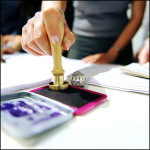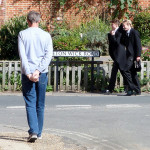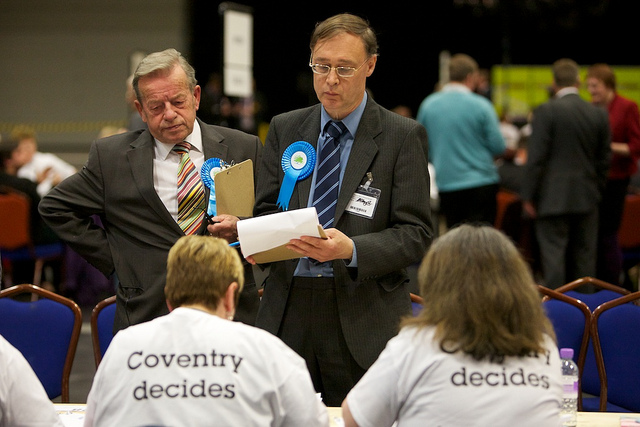20 things we learned about democracy in March 2014
March 2014 was an eventful month for democracy, with April set to be even more eventful yet. From dancing to election results, to Islamophobia and local government, Democratic Audit brings you the 20 most interesting things that came across our radar this month.
1) April will be the most democratic month the world has ever seen. Find out more here.
2) Every vote cast in UK elections costs the taxpayer £5.91. Find out more here.
3) Comprehensive local election results are available from a single, online source in Ireland, Australia and Bangladesh. In the UK, they are not. Find out more here.
4) Apparently it takes only 10 days to organise an independence referendum in Crimea. Scotland has given itself about three years to do the same. Find out more here.
5) The 9th May 2015 could be a Happy Thursday for musician/dancer/philosopher Bez. Find out more here.
6) Some journalists, ministers and intellectuals share the same form of Islamophobia as the English Defence League. Find out more here.
 7) A quarter of young people move between local authority areas in the same year they achieve the right to vote. Find out more here.
7) A quarter of young people move between local authority areas in the same year they achieve the right to vote. Find out more here.
8) In the 2010 Senate election, Belgian political parties spent an average 43% more on the campaigns of male candidates than those of female candidates. Find out more here.
9) The last time a gay politician in the UK was called a ‘poofter’ in the national press was 2001. Find out more here.
10) Accusations of electoral fraud are often made by politicians seeking to undermine the legitimacy of the winner, or seeking to make the case for more restrictive electoral laws from which they might gain partisan advantage. Find out more here.
11) 10% of special advisers in the 1997-2010 Labour government later stood for Parliament, compared to 25% of special advisers in the 1979-1997 Conservative government. Find out more here.
12) Turnout in US presidential elections is significantly higher in states that allow voters to register on the day of the election. Find out more here.
13) The government acted unlawfully when it blocked the publication of letters from Prince Charles to Ministers, according to  the Court of Appeal. Find out more here.
the Court of Appeal. Find out more here.
14) While many voters across Europe hold the EU responsible for policy failures, it is difficult for them to hold it effectively to account. Find out more here.
15) In the US, restrictive voting laws tend to be introduced after there has been an increase in election turnout among minority and low-income groups. Find out more here.
16) 38% of the British public think going to Eton makes someone unsuitable to become a leading politician. 13% think taking heroin or cocaine when younger makes someone unsuitable. Find out more here.
17) Ukip’s best bet for winning a Parliamentary seat is the Great Grimsby constituency. Find out more here.
18) 31% of the electorate can be characterised by their “calm persistence”, while 22% are “optimistically contented”. Find out more here.
19) 79% of people trust their council to make the important decisions about public services, compared to just 11% who trust the government. Find out more here.
20) 56 per cent of those who didn’t vote in 2010 said that they would probably vote if an election was held tomorrow. Find out more here.
—
Note: This post does not give the position of Democratic Audit or the London School of Economics. Please read our comments policy before commenting. Shortlink for this post: https://buff.ly/1msONVl
[Inset image credits: stamp; European Parliament, CC BY NC 2.0 / Eton College kids: griffinstar7, CC BY NC SA 2.0]






 Democratic Audit's core funding is provided by the Joseph Rowntree Charitable Trust. Additional funding is provided by the London School of Economics.
Democratic Audit's core funding is provided by the Joseph Rowntree Charitable Trust. Additional funding is provided by the London School of Economics.
Fantastic Citizenship resource (& fascinating to boot) > 20 things we learned about democracy in March 2014 https://t.co/ozwaxOkuui
https://t.co/yPOJ3MOSgV I love lists – 20 things we learned about democracy in March 2014 @democraticaudit
Interesting round up post from @democraticaudit – ’20 things we learned about democracy in March 2014′. https://t.co/AMXrFjBfkq
20 things we learned about democracy this month. #2 Every vote cast in UK elections costs the taxpayer £5.91 https://t.co/61fkDPVWtK
20 things learned about Democracy in March, 20 whole things! Some good links here…https://t.co/oSiOJVEAXQ
Comprehensive local election results are available from a single, online source in Ireland, Australia and Bangladesh https://t.co/ZK25QWZkD8
20 things we learned about democracy this month… #1 April 2014 is going to be the most democratic month ever https://t.co/x8D3hm8Y98
What takes 3 years in Scotland and 10 years in Crimea? (and 19 other things we learned about democracy this month) https://t.co/rd7glBbp3N
20 things we learned about democracy in March 2014 from @democraticaudit https://t.co/kBx2cAe36o
20 things we learned about #democracy in March 2014 https://t.co/So3xZkb3qC
20 things we learned about democracy in March 2014 https://t.co/izjbjE9pgX @democraticaudit
20 interesting things we learned about democracy during March 2014 https://t.co/1DIJFl4wn4
Ukip’s best chance of winning a Parliamentary seat, and 19 other things we learned about democracy in March 2014 https://t.co/HsjK4qca6s
Hope.. RT @great_charter: April 2014 will be the most democratic in human history .. via @democraticaudit https://t.co/jrsIqGfId9
April 2014 will be the most democratic in human history .. via @democraticaudit https://t.co/zlw3EfqQYd
20 things we learned about democracy in March 2014 https://t.co/S8QmI0wqpf
20 things we learned about democracy in March 2014 https://t.co/OTNUUbobQS